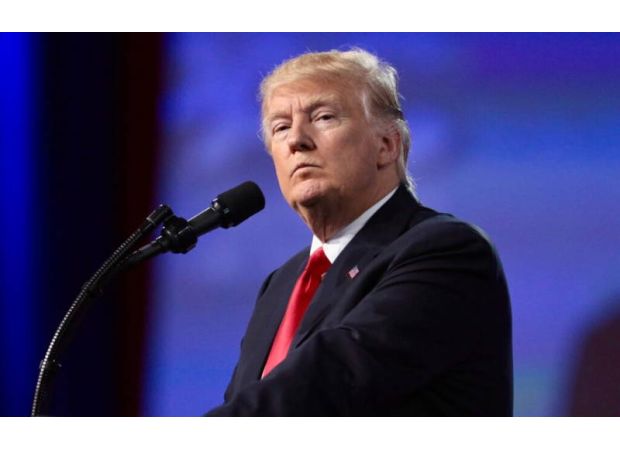Trump's economic plans may harm Black businesses, but there could still be some chances for growth.
A study shows that proposed tariffs by the Trump administration could result in a loss of $3.6 billion in yearly revenue for Black-owned businesses.

Did you know that a significant 24% of businesses owned by Black individuals rely on imported goods that could be affected by tariffs? With the proposed tariffs by the Donald Trump administration, these businesses could potentially lose anywhere from $1.8 billion to $3.6 billion in annual revenue. This estimate comes from an analysis by William Michael Cunningham, an economist and CEO of Creative Investment Research.
It's a concerning situation for Black businesses as Trump begins his second term as president. While the exact impact of these policies is still unclear, a group of Black economists agrees that they could harm these businesses, especially when competing against larger and financially stronger non-diverse companies.
The potential consequences of Trump's policies are far-reaching and could include an increase in consumer goods prices, a rise in government debt, and a higher cost of living for those making less than $100,000 a year. Additionally, there is uncertainty about how his leadership will affect the Federal Reserve's ability to control interest rates.
BLACK ENTERPRISE spoke with several Black economists to gain insight into what the next four years could look like under these proposed policies. One of the key proposals is to reduce the corporate tax rate from 15% to 21%. While some entrepreneurs may welcome this reduction, others fear that Trump's protectionist trade approach and his promise to repeal the Affordable Care Act could create costly and systemic issues that outweigh any tax benefits.
On the trade front, Trump has suggested imposing tariffs of 10% to 20% on all imports and 60% to 100% on Chinese goods. He believes that these policies will lead to job creation and help U.S. manufacturers. However, the National Retail Federation estimates that these tariffs could cost consumers a total of $78 billion each year.
Another concern is that Trump's broader economic plan could result in a significant increase in the federal deficit, potentially ranging from $3 trillion to $7 trillion.
According to Cunningham, Trump's policies on protectionism, tax reform, and social spending cuts could have a mixed impact on Black businesses. While tariffs may increase import prices for larger white-owned businesses that rely on international supply chains, they could also lead to a decrease in customer spending due to inflationary pressures. This could have a negative impact on Black businesses, as their customers may reduce discretionary spending.
Romie Tribble, Jr., an economics professor at Spelman College and secretary of the National Economic Association, explains that Black businesses in transportation, warehousing, retail trade, construction, food services, wholesale trade, manufacturing, and agriculture are more reliant on imports and exports. He believes that imposing a 25% tariff on goods from Canada and Mexico and a 10% tariff on Chinese goods would be challenging for these businesses to pass on to their customers. This could result in a significant decrease in customer demand and employment, forcing these businesses to absorb the tariffs themselves. This could lead to financial struggles and potentially even business closures.
Furthermore, there may be global and environmental setbacks for Black businesses. Cunningham points out that Trump's decision to withdraw from the Paris Climate Accord could negatively impact Black-owned businesses that are focused on sustainable practices or clean energy industries. This could result in a lack of federal support for these businesses, hindering their growth.
The impact of Trump's policies on Black women-owned businesses is also a concern. Rhonda Vonshay Sharpe, president of the Women's Institute for Science, Equity and Race, explains that a significant number of Black women who are self-employed work in industries that rely on imported goods, such as nail salons, retail, beauty salons, and healthcare. She believes that these businesses will be particularly vulnerable to the tariffs, which could increase the cost of inventory and make their services more expensive for consumers. This could lead to closures for these businesses, negatively impacting wealth accumulation, economic mobility, and fiscal security.
Sharpe also highlights concerns about Trump's proposed cuts to social spending, such as the Supplemental Nutrition Assistance Program, the Department of Education, and Medicare. She explains that these cuts could have significant consequences for low-income households, particularly those headed by Black women.
However, there may be some opportunities for Black individuals and entrepreneurs who invest in the stock market. It has been reported that U.S. stocks experienced a bullish run after Trump's election, with expectations that his policies could benefit different industries through tax cuts, deregulation, and a focus on domestic energy production. The technology, energy, and financial sectors have seen an uptick in stocks.
Cunningham also believes that Black-owned businesses that primarily operate at a local or regional level may benefit from less competition from international players due to the tariffs. This could create a more competitive landscape for these businesses and potentially lead to growth opportunities.
Overall, while there are concerns about the potential negative impact of Trump's policies on Black businesses, there are also possible opportunities for growth and success. As always, it's essential to stay informed and adapt to any changes that may arise.






